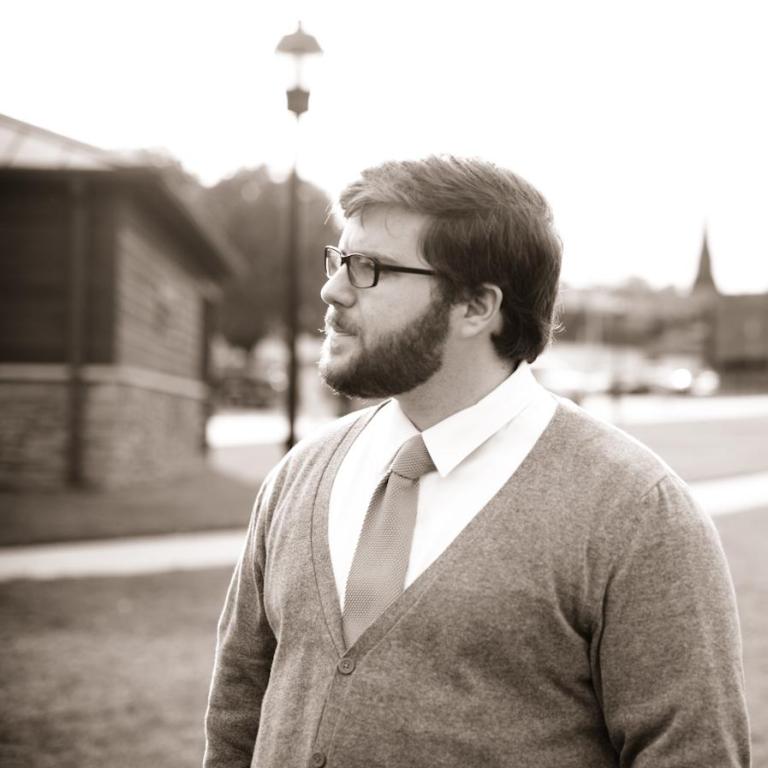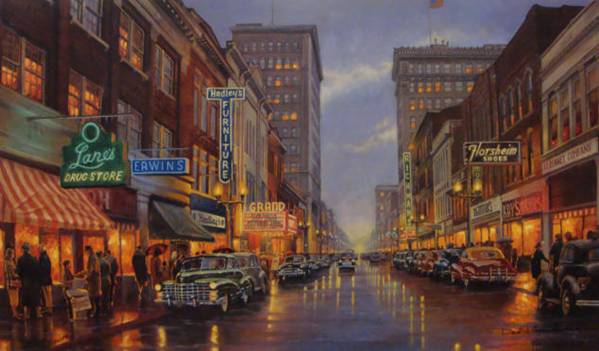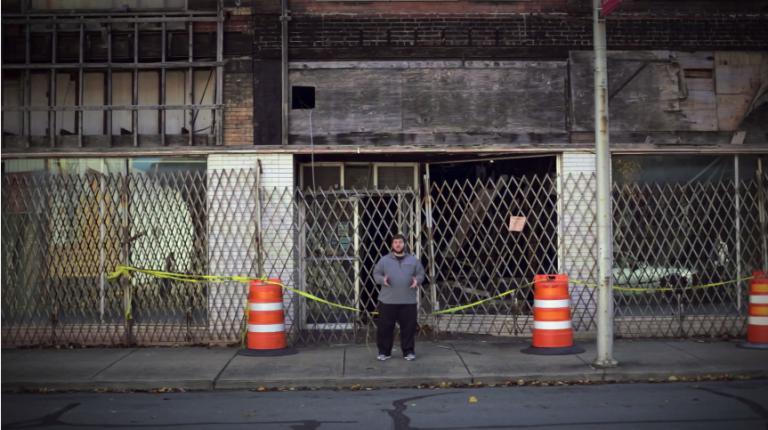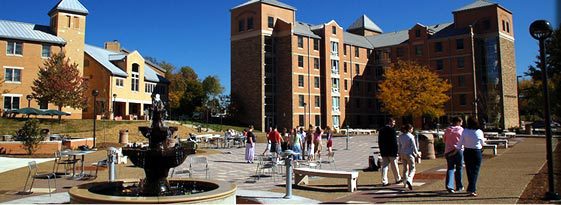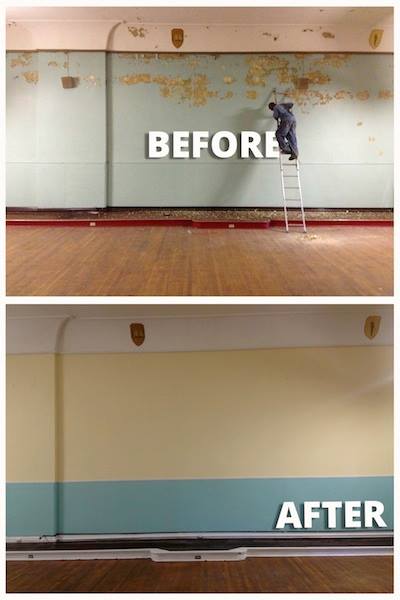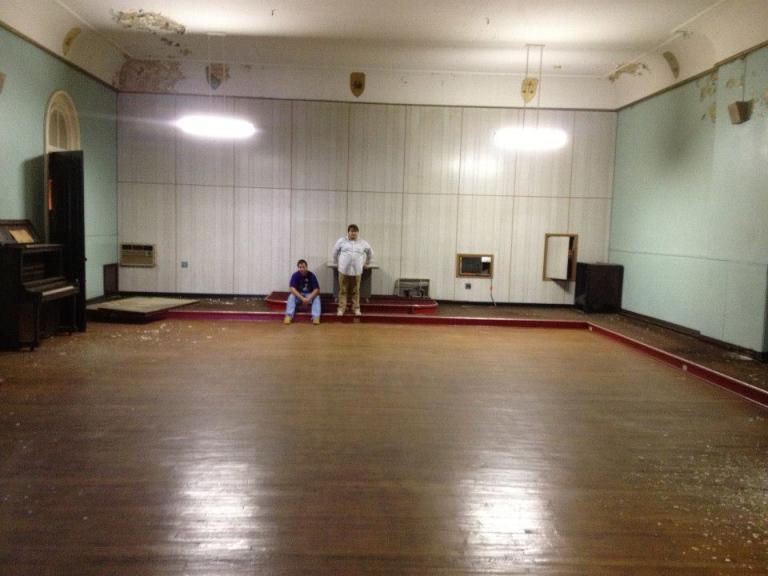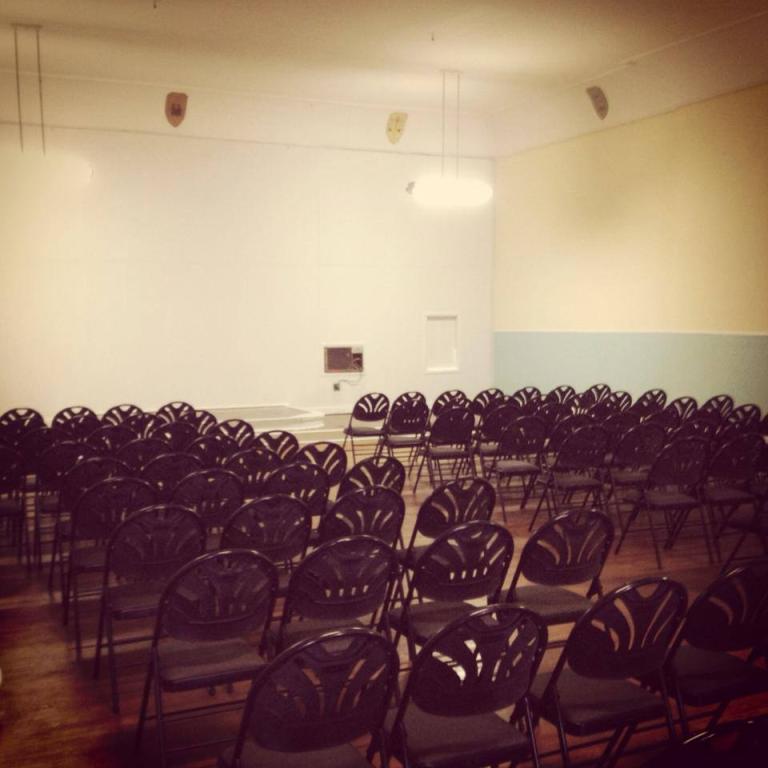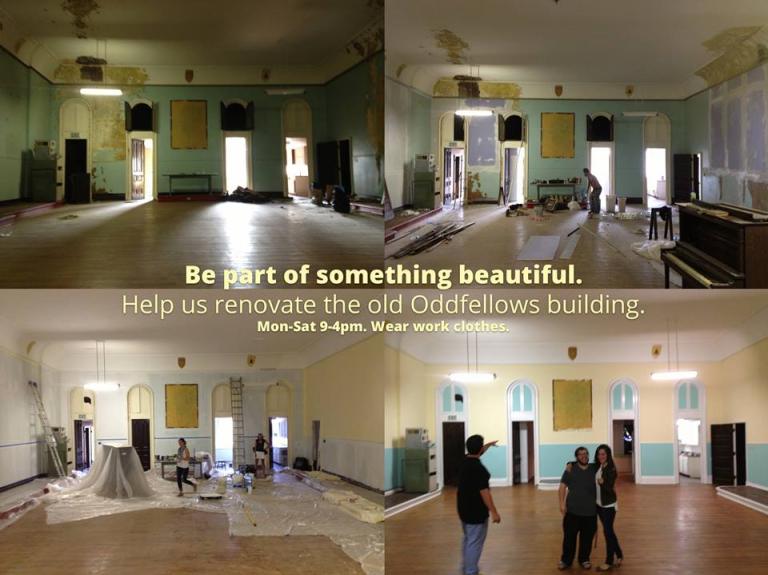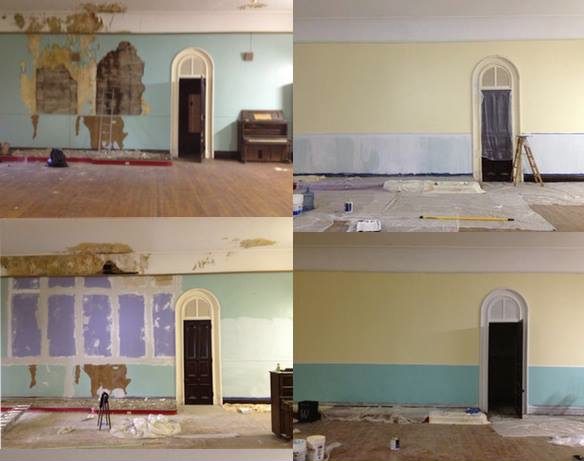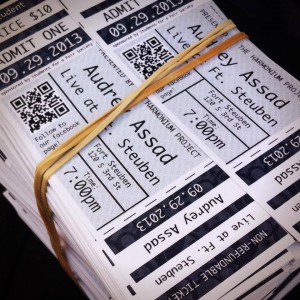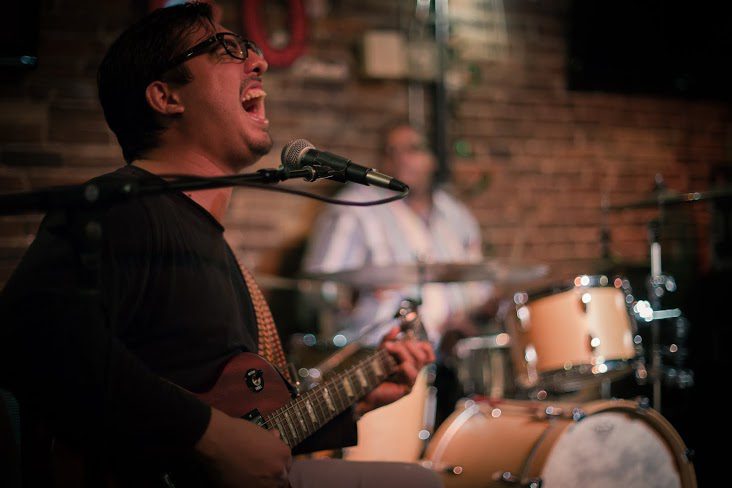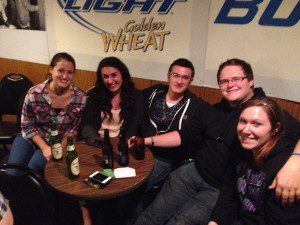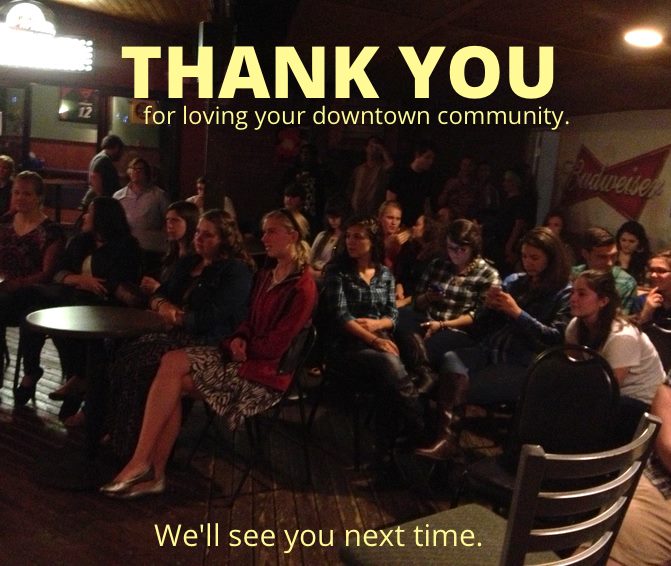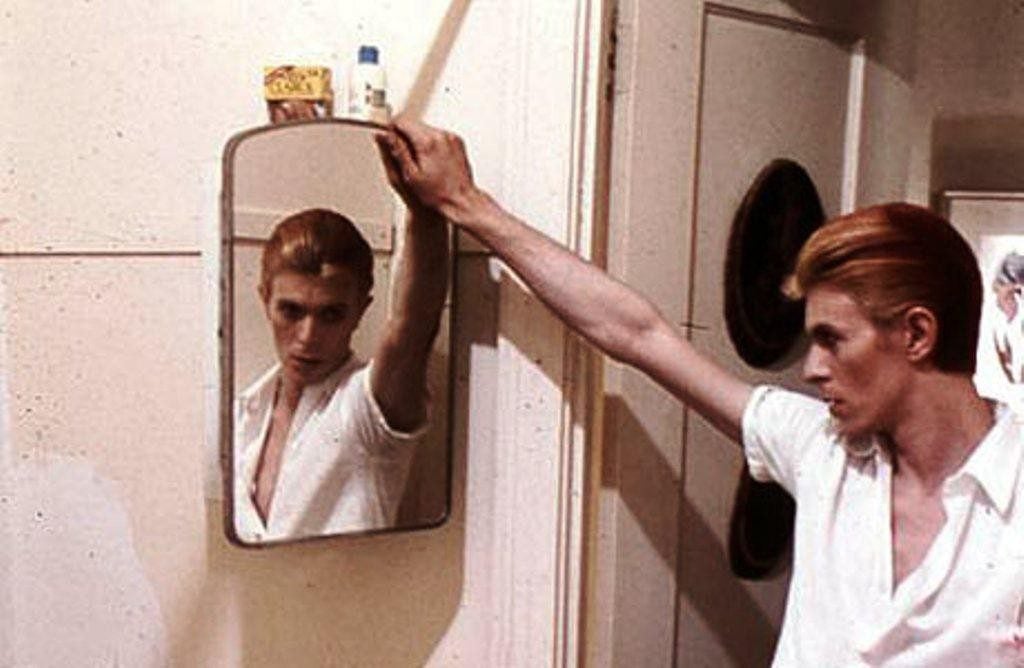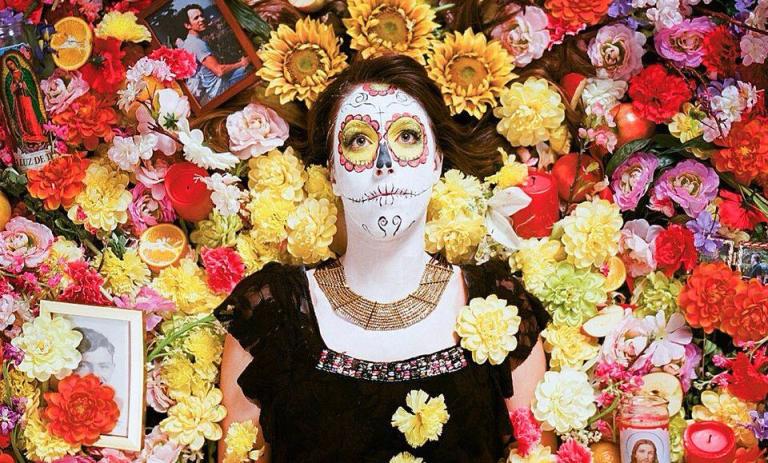Over the summer, my friend Joseph Antoniello
and I
on a porch in Steubenville, Ohio discussed — as only sleep-deprived undergraduate philosophy students can discuss — the radical nature of action, the terrible possibility of doing something, the near-infinite apathy of our age and our selves, and the Herculean effort it takes to shrug the malaise of just-letting-things-happen in order to act. We were both reading the texts of Karol Wojtyla…
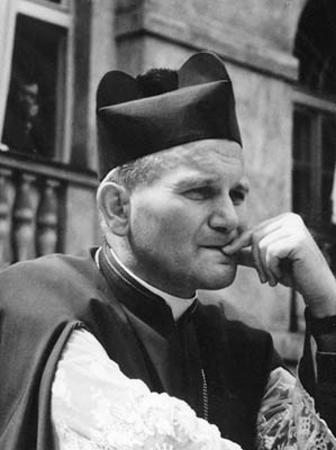
…who argues it is precisely in action that the person is revealed to himself, and that all true, self-determined action can only ever come from the person — it is his possible crown, this capacity to stand up from the couch, to drive some stake into the flux of history and shape the very content of the universe.
The second topic was downtown Steubenville. The story of Steubenville is, in a way, typical of the Rust Belt that ropes around Ohio, West Virginia and Pennsylvania. A once-thriving industrial city, now without industry. A city built around steel, now without the mills, suffering an economic depression with all its bitter seasonings — dilapidated buildings, empty streets, homelessness, poverty, prostitution, drug abuse and packed soup kitchens all around. From this:
to eerily empty streets after the sunset and a lot of closed-down buildings.
The crux that kept us yelling, quoting, and throwing bottles at each other until sunrise, however, was the fact that Steubenville houses our school — Franciscan University.
I love my school. Great philosophy program. But there is a serious — if unintentional — dichotomy between the wealth that exists on our campus and the poverty that exists “down the hill.” There is a bifurcation between the culture lived and loved at our Catholic school — with its constant call to love our neighbors and its rich investigations into the nature and inestimable worth of every human person — and the anti-culture our city struggles with below — with the heroin-running “Chicago boys,” the prostitution on North Street, and the tragic Steubenville rape case, where the weak were left to the wolves.
Don’t allow me to oversimplify the situation. There is good, real good in Steubenville, Ohio. Businesses may well be framed by empty buildings on either side, but owners hold to hope and serve their community, striving daily against difficulties. There are beautiful areas in Steubenville, places of incredible history and architecture, and their owners work hard to maintain them. Churches open their doors to the poor — the Urban Mission, for instance, offers food for the hungry from Monday through Wednesday, the Rescue Mission gives the homeless a bed, and the Third Order Regular Franciscan Sisters, from their thrift store on Washington Street, minister to the needy, giving clothes, coffee and kindness. I have found more hope in the difficulties of Steubenville than I have anywhere else.
Neither should I oversimplify the distance between our school and the downtown. Franciscan University reaches out be a source of comfort and joy — sending volunteers to the soup kitchens, missions to help revitalize impoverished areas, and, on a purely practical note, it operates as the area’s largest employer.
But by going downtown and speaking with people — fascinating, unrepeatable, difficult, frightening, beautiful people — I realized that the student body of Franciscan University, myself sorely included, were missing something. Downtown Steubenville is not a charity case. It is not a “mission territory.” It is our home. What’s needed is not a “going-to” and a “coming-down” from our campus to “that other place,” a well-intentioned attitude that nevertheless cements the dichotomy of otherness. What’s needed is love, and loving where we live. What’s needed is an organic integration between the student body and the downtown, a unity founded in the absurd, shocking fact that we are family, that we share a city and thus a life together, whether we acknowledge it or not. Not a coming together, but a daring recognition that we already are together, and need to start acting like it.
Franciscan University has the capacity to exist as an entirely self-contained culture. Being a fervently Catholic school, it already comes with a certain attitude of “being set apart,” which is not unequivocally bad, but can have the consequence of small-scale isolationism. Most students are required to buy a 1500-2000 dollar meal plan at the beginning of the school year, which can only be spent at locations on campus, thereby cementing the main college-social-interaction event — eating — on the campus. There is a certain stigma — not without some warrant, but overblown nonetheless — of downtown Steubenville being a scary, dangerous place, and another stigma of Franciscan University being a haven, a time of formation — not a time of going out and doing. There is a lack of transportation to the downtown area. There is a lack of things to do downtown, and a lack of knowledge of those things that are there to do, and this is hardly unique to Steubenville. I have been told a similar situation exists between Notre Dame and South Bend, Indiana.
But looking to Pope Francis that summer, and reading the social encyclicals of the Catholic Church, and it occurred and still occurs to me that a certain radicalism, indeed, that a certain absurdity is required of the Catholic in this situation. If the area is dangerous, we ought to be more willing to run to it, not less. If there is little to do, we ought to be more willing to act in the downtown area, not less. Difficulties should be a far greater incentive to love our neighbors than all than all the incentives offered by thriving college towns — bars, restaurants, bookstores, coffee houses, and the entire lot. “Where there is despair let me sow hope,” right?
These two ideas — an immature and over-thought conviction of the necessity for action and a recognition of a dire need for presence in Steubenville, for simply living where we live — crashed into a third — beauty.
Beauty is awesome, and the particularly shining bit of awesome that gripped our hearts and grabbed our attention on that summer porch was this: Beauty unifies. The man gazing on the Van Gogh is in real unity with the man gazing next to him. They are united in the aesthetic object, or to simplify, in a shared experience of something bigger than themselves. Beauty ennobles us, and does away with the differences that estrange us from our neighbors. Concerts make communities and artists build respites from isolation.
What if — we reasoned — we planted something beautiful in downtown Steubenville? What if we worked to set up a fantastic music scene, one that invited excellent artists about the business of creating real beauty? This would give students a reason to come, and more than that, to enter into communion with their city, to be united with their neighbor in the mutual enjoyment, the mutual contemplation, even, of something good. This idea was the conception of the still-fetal Harmonium Project, a project that aims to establish a thriving music scene in the heart of downtown Steubenville, to be a source of revitalization by way of beauty.
Ideals are powerful things. Given grace, they always rise to practical incarnation. And practically, the idea has potential. If we could hold regular concerts in the downtown area, we would attract a regular influx of college students — not just from Franciscan, but from Pittsburgh and the surrounding area. This would introduce to our city a new market, a possible culture, the regular presence of hundreds of people who have come to downtown Steubenville to experience something beautiful. This presence would be a spark, a reason for business owners to “open up shop,” to create jobs, to have a mighty reason for hope. We could, essentially, help Steubenville become a college town.
So we are building a music center, restoring the ballroom of an old Oddfellows building…
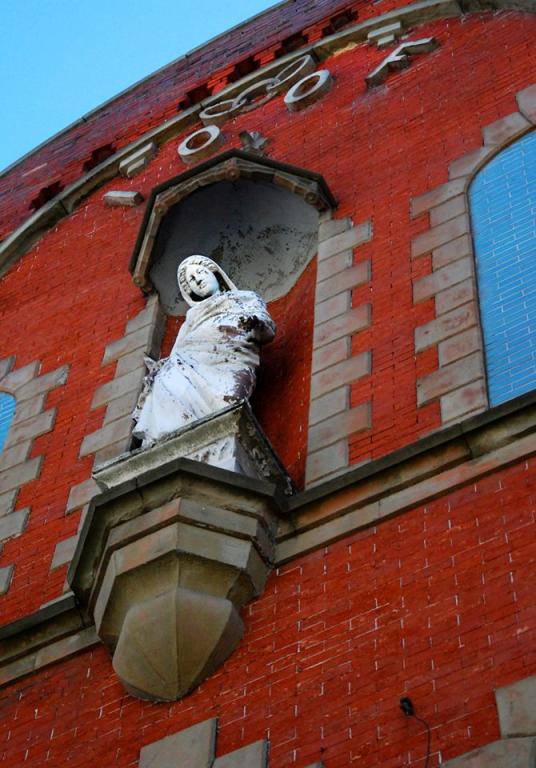
…to turn it into a music venue. It’s a severely cool place, and it’s come a long way.
We are doing this because we know that when hundreds of college students regularly come down to hear great music, a coffee shop next to the music venue makes a whole lot of sense. A record store is a natural conclusion. An art studio finds in downtown Steubenville a possible niche. I can’t give specifics, but I’ll say this: Just the hope of a student presence in downtown Steubenville has already inspired the purchase of property in the downtown, the initial development of new businesses aimed at university students. We are trying to be a catalyst for change, a spark on kindling, a snowball rolling down an avalanche to eventual social justice.
And to further integrate the student body and the city, we’re turning parts of the building into music rooms, to offer free music activities to kids who otherwise couldn’t afford them. Already students have volunteered to teach music lessons, to be there as a loving presence in the life of a child. Already locals have been donating their used instruments. There is a real excitement about the possibility of a turning tide.
We called on students to help, and their response was overwhelming.
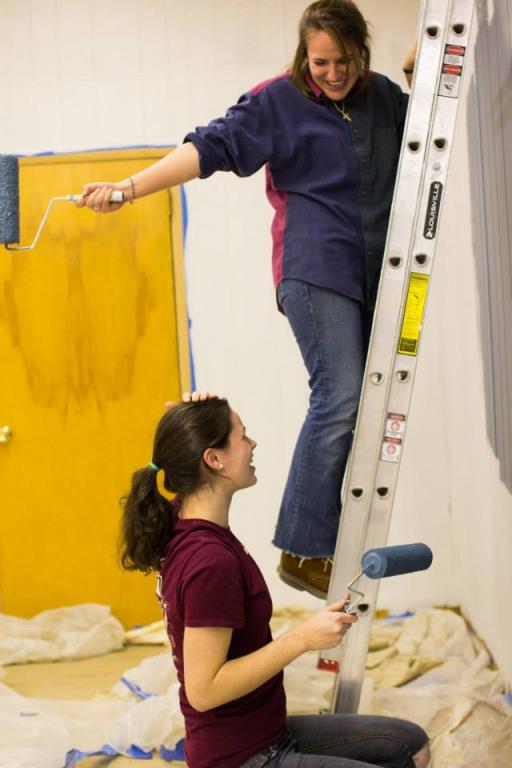
We found a truth I hoped to find, that people want to love where they live, to act, to change their world — they are usually just looking for a way. So over the school year I became obnoxiously acquainted with drywall and paint, belt sanders and polyurethane, my own absolute reliance on the goodwill and help of other people, and the strong sense of community a project of hope can bring.
The question most people have when I bring up this idea is: Will it work? Can establishing a music scene really help restore a city? As with most things regarding the future, I haven’t the foggiest. But let me tell you about some initial progress. Audrey Assad generously agreed to come play downtown Steubenville for us, and almost 500 kids paid for tickets, most of whom had never been downtown before.
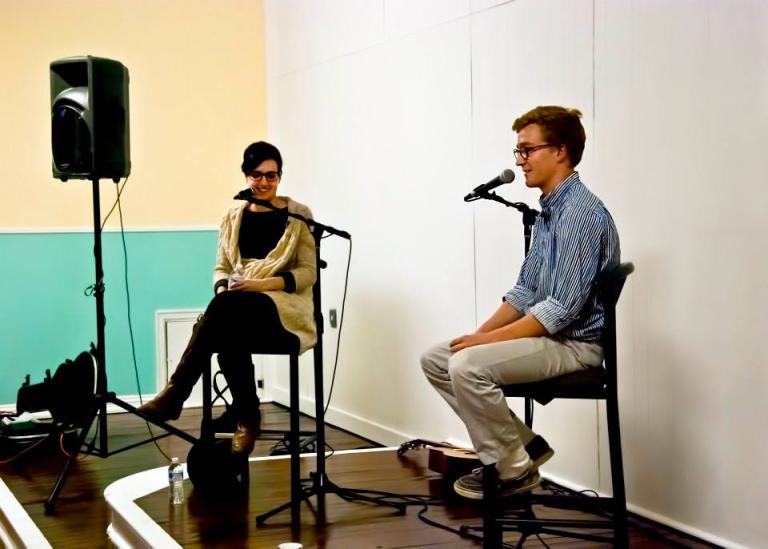
We know that it’s not as simple as building a building, so we’ve been working to promote the wonderful businesses that already operate in the downtown area, through social media, and with ads like this one:
And already, local businesses have seen an increased presence of college students in the downtown area. A few weeks ago, I was at one of my favorite places, Steve’s Fish and Chips, a we-fry-everything joint we’ve been promoting to the student body of Franciscan, and they mentioned that they had, for the first time, been getting delivery orders to our school. They mentioned having no idea that Franciscan University was so big, though it was right in their backyard. “Don’t worry, we’ll get used to the roads up there,” they said.
As we work hard to make the music venue a reality, we’ve been hosting concerts at other venues downtown, like the Spot Bar. We even had Sam Rocha, my fellow writer at Patheos and an all-around rolling ball of serious excitement, come from North Dakota to play some shows:
The students come, they patronize local businesses, they get excited about the mission, and they bring others along.
So I believe the signs are good. Now we want to make this initial excitement a reality. In the spirit of Wojtyla and Francis, we want to do something. Which is why, in the spirit of advent, I am asking for 250,000 dollars for The Harmonium Project.
If you read my writing regularly, I want to appeal directly to whatever minuscule shred of affection your blog-reading heart holds for me, to that brief, shining moment in which I avoided offending you and managed to type something nod-inspiring, evoking from you a begrudging grunt of approval. I don’t know how much such writing is worth to you, but I am, quite willingly, going to drop all pretense of dignity, and hope that, collectively, it’s worth 250,000 dollars.
We’re running an awesome Indiegogo campaign that has all the details about where our money is going — our biggest purchases will be the building itself and the sound and light equipment necessary to make turn it into a functioning venue. I’ll send you there in a bit. But first I want to do some math. I have 16,266 likes on Facebook. Which means that if everyone who likes my writing enough to “like” me donated 15.4073708862 dollars each, we’d be set. So please, donate 15.4073708862 dollars. And then realize that a Facebook like is not a $15.4073708862 dollar commitment , and donate more to make up for that. Also, some one tell Jon Foreman about this. I think he’d dig it.
We have some awesome perks on our Indiegogo page. (See, I sent you there!) I want to draw your attention to a particular one here. For a 500 dollar donation, I’ll write an essay on a topic of your choice, and publish it on BadCatholic. You might be thinking, “500 dollars for a blog post, that’s ridiculous!” And you’d be absolutely right. It’s entirely ridiculous. Do it.
Help us to change our corner of the world for the better. Donate. Share our Indiegogo page. Like us on Facebook. And please, above all else, keep us in your prayers.

